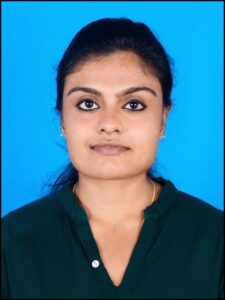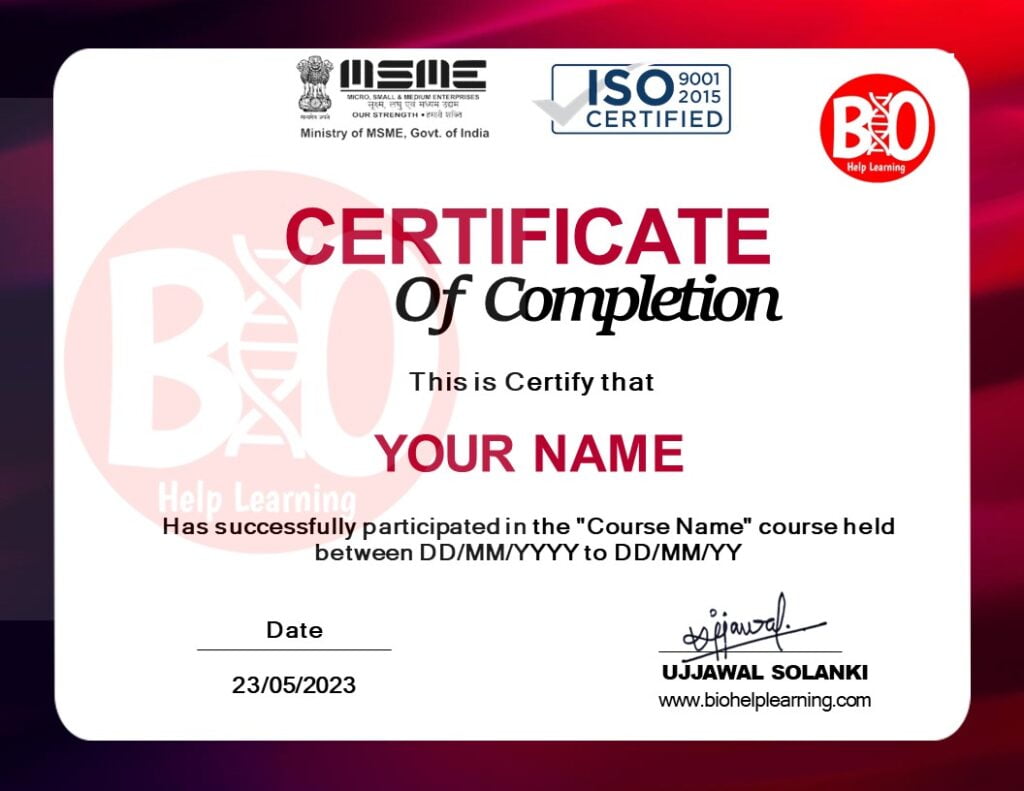Advance 15 Days Metagenomics Data Analysis Training.
This course is designed for students, researchers, and professionals who are interested in understanding and applying bioinformatics techniques to analyze metagenomic data. Upon completing this training, you will become an expert in metagenomics and be able to independently undertake projects involving metagenomics and next-generation sequencing (NGS). Book your seat now and begin your journey into the world of metagenomics!


Educator
Ananya Ghosh

Difficulty
Basics to Advance

Mode
Live Session

Language
English
About Course
This Metagenomics Data Analysis course provides an in-depth understanding of the tools, techniques, and methodologies required to analyze complex metagenomic data. It is tailored for students, researchers, and professionals who wish to develop expertise in bioinformatics and the application of next-generation sequencing (NGS) technologies in microbial community analysis.
Throughout the course, participants will learn how to process and analyze large-scale sequencing data, explore microbial diversity, and interpret functional genomic information from environmental samples. The curriculum covers a wide range of topics, including raw data quality control, metagenomic assembly, taxonomic classification, functional annotation, and statistical analysis of microbial communities. Additionally, hands-on experience with popular bioinformatics tools such as FASTQC, DADA2, and QIIME2 will equip participants with the practical skills needed to carry out independent metagenomics projects.
By the end of the course, students will be proficient in metagenomics data analysis and capable of executing real-world projects in areas such as microbiome research, environmental monitoring, and clinical applications. Whether you are looking to enhance your research, transition into bioinformatics, or dive deeper into microbial community analysis, this course will set you on the path to becoming a confident and skilled practitioner in the field of metagenomics.
Metagenomics Data Analysis Training
Day-1
Introduction to Metagenomics
- Agenda: Understand the basics of metagenomics and NGS data formats (FASTA, FASTQ), and their relevance in microbiome research.
- Outcome: Gain a strong theoretical foundation to start practical applications.
- Tools: None (theoretical session)
Day-2
Environmental Setup
- Agenda: Install essential tools like QIIME2 and FastQC. Learn basic Linux commands to navigate and manage bioinformatics workflows.
- Outcome: Set up a functional environment for metagenomics analysis.
- Tools: Linux commands, QIIME2, FastQC
Day-3
Quality Control of Raw Data
- Agenda: Perform quality control on raw sequencing data and interpret FastQC reports to identify potential issues.
- Outcome: Understand how to assess and ensure the quality of sequencing data.
- Tools: FASTQc
- Take home assignment
Day-4
Read Trimming and Filtering
- Agenda: Remove adapters and low-quality reads to prepare clean datasets for analysis.
- Outcome: Learn preprocessing techniques essential for accurate downstream analysis.
- Tools: cutadapt, QIIME2.
- Take home assignment
Day-5
Taxonomic Profiling
- Agenda: Classify microbial communities using MetaPhlAn and visualize taxonomic distributions.
- Outcome: Identify microbial taxa present in your dataset and interpret their roles.
- Tools: MetaphlAn
- Take home assignment
Day-6
Alpha Diversity Analysis
- Agenda: Measure species diversity using metrics like Shannon and Simpson
indices. - Outcome: Evaluate within-sample diversity and its ecological significance.
- Tools: QIIME2 (diversity metrics)
- Take home assignment
Day-7
Beta Diversity Analysis
- Agenda: Compare microbial community structures across samples and
visualize differences using PCoA plots. - Outcome: Understand sample clustering and relationships between
microbial communities. - Tools: QIIME2, Matplotlib.
- Take home assignment
Day-8
Differential Abundance Analysis
- Agenda: Identify significant differences in microbial taxa between groups
using statistical tools. - Outcome: Analyze how different conditions impact microbial communities.
- Tools: DESeq2 (R).
- Take home assignment
Day-9
Functional Profiling
- Agenda: Predict metabolic pathways and functional annotations from
metagenomics data. - Outcome: Understand the functional capabilities of microbial communities.
- Tools: HUMAnN.
- Take home assignment
Day-10
Assembly of Shotgun Data
- Agenda: Assemble shotgun sequencing reads and annotate functional
profiles. - Outcome: Gain skills in reconstructing microbial genomes and identifying
gene functions. - Tools: SPAdes, Prokka.
- Take home assignment
Day-11
Advanced Data Visualization
- Agenda: Create heatmaps, bar plots, and combined visualizations to
interpret complex data. - Outcome: Learn to present data effectively for reports and presentations.
- Tools: ggplot2 (R), Python Matplotlib.
- Take home assignment
Day-12
Dataset Exploration
- Agenda: Access and evaluate microbiome datasets from public repositories
like MGnify and NCBI. - Outcome: Learn how to integrate public datasets into your research.
- Tools: MGnify, NCBI.
- Take home assignment
Day-13
Report Writing and Results Interpretation
- Agenda: Compile your analysis results into a structured scientific report.
- Outcome: Gain experience in summarizing findings and preparing a
comprehensive report. - Take home assignment
Day-14
Processing of Shotgun Data
- Agenda: Create an engaging presentation summarizing your findings from
the course. - Outcome: Learn how to effectively communicate scientific results to an
audience. - Tools: PowerPoint or Google Slides.
- Take home assignment
Day-15
Assembling Data for Taxonomy and Function
- Agenda: Present your analysis and key insights to peers, followed by a
discussion on challenges and takeaways. - Outcome: Build confidence in presenting research findings and receive
constructive feedback. - Tools: PowerPoint or Google Slides.
- Take home assignment

Ananya is a Bioinformatics professional with a strong foundation in multi-omics and computational biology. Holding a Master’s in Systems Biology, she specializes in microbiome analysis and has worked on diverse projects spanning phylogenomics, network biology, and transcriptomics. With a strong research background and a passion for integrating theory with hands-on research, Ananya is dedicated to engaging students in genomics, microbiome research, and data-driven biological insights. She is committed to advancing bioinformatics education and fostering a deeper understanding of computational approaches across various domains of life sciences.
Metagenomics Complete Data Analysis from Basics to Advance
Mode - Live Session
Certificate Provided
Hours 15 - 20 Hours
Session Time: 7:30 PM IST
Last Date 24 June 2025
Course Start Date 25 June 2025
Recorded lecture will be Provided
Previous Batch Students Reviews

Shriraksha.H.Padaki
very nice

Animesh Ray
I hve learnt some basic about bioinformatics..

SUBHAM DAS
Help to acessing new bioinformatics tool.

Prabhavi Praveenkumar kamble
It help to aggregate my data more properly and to make me Express them is more statistically.

ANUSHA P V
It helped me a lot in gaining knowledge regarding the topic.
Certificate

FAQ
Session Joining link will be send to your register email on the day of session start you can join session by clicking joining link.
Yes! All of our Live sessions are recorded and you can access recorded session after live classes, recorded session link will be send to your respective email after live classes. recorded session will be available for 30 days after live classes
All Session are evening sessions time of session is between 7:00 to 8:00 PM IST.
Please read refund policy in refund policy section page.
No, any short Prerequisites knowledge you required to join the course.
